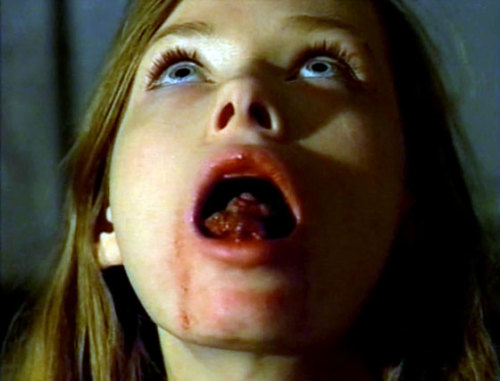There is a genre of horror referred to as ‘body horror’. It’s different from ‘gore horror’ and ‘erotic horror’ by its point of attack. Gore is about being visually assaulted by images of what's kept hidden inside the skin, and erotic horror is about teasing you with what lies in the shadow of eroticism without ever showing you. Body horror is the revelation that our own bodies are completely alien and unknowable to us. Life is an inescapable labyrinth of flesh and confusion. Two modern sages of this wisdom are David Lynch and David Cronenberg.
First Lesson: The Labyrinth of Flesh
David Lynch’s early cinematic work are poems of Body Horror. His first feature-length film Eraserhead details the adventures of Henry Spencer, a man who learns that his lover is about to birth them a baby, well at least they think it’s a baby. A fever dream of dark hallways, mutated bodies, infested landscapes and swamps of sexuality, Eraserhead is a nightmare of being caught in the procreation factory. Henry walks around in a state of perpetual confusion. Embryo’s in the bed, mysterious people appearing to him as in a dream, black planets, and black places. We live in a strange place. We were born into a drama of squirming flesh fighting to live on a barren rock in the nothingness of space. The purpose of life is to create more life. From microbes to things crawling unto ancient shores to things that fuck and think, the life urge overtakes all it sets its sights on. Contrary to its seemingly dark mood, Eraserhead takes pleasure in the flesh factory that is the Earth and shows all the dark delights of mutating flesh and lust in the night. Where did life originally erupt from and what is its natural home? Lynch’s films would answer, “ Somewhere in the unknowable darkness. “
.JPG)
Second Lesson: A Tumor of the Mind
David Cronenberg’s early films like Shivers and Rabid are biological tragedies about the attempt to escape the life/death cycle of mortality and the dangers of trying to escape our physical destiny. His body horror films mainly focus on men and women of science trying to fundamentally alter what it means to be human by altering the body. In Shivers it's about trying to reduce consciousness through a parasite that takes over and transforms its host into a purely sexual being, ushering in a transformative sexual apocalypse. Rabid is about a plague that makes its hosts into mindless killers, with a hapless surgically mutated plague carrier caught up in an addiction to blood, using her sexuality to entrap victims and spread the disease. Both films show that the body politic rules over social politics. The origin of society is the human body. And its desires and obsessions form the structure of society.
The mutability of the flesh and how it can be rearranged. What we take to be ‘us’ changes over the years. And there is no stable boundary between ‘us’ and the outside world. We are made up of viruses and other intruders as much as we are made up of blood and skin. And Cronenberg casts a clinical look at human desires as a virus would look. Like how love is an organism's desire to change and be changed. “ Disease is the love of two alien kinds of creatures for each other, that even dying is an act of eroticism. “ - Shivers. Human life is a day to day theatre of penetration. From bodies to other's emotions to advertising to media to bacteria to pharmaceutical drugs. We are penetrated by a thousand things every day. How do you reserve a sense of self? Is there a self? It seems that Cronenberg’s films answer, “ We are defined by what we desire to penetrate us. “

Body Horror is crucial to our understanding of this world we are born into. Questions of why the human race acts like it does and why we exist are dealt with by Body Horror. Horror cinema acts like a soft voice in the night talking about things you don’t want to think about in the daylight hours. These films whisper to their audiences, “We humans are walking diseases. Born in the nothingness of space. We humans are meant to spread and infect. And it is both heartbreaking and beautiful. “
No comments:
Post a Comment